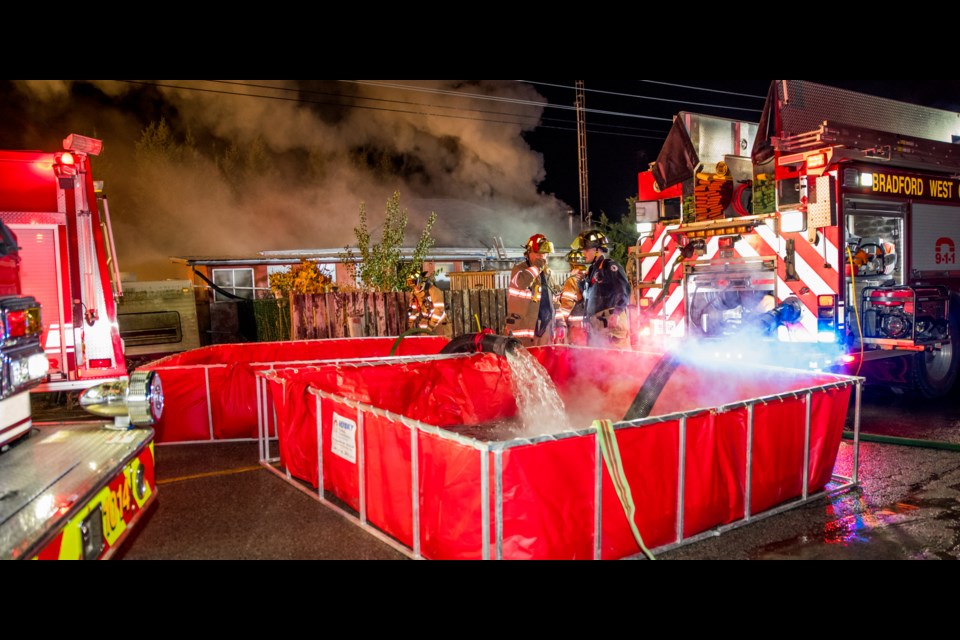Bradford firefighters have good reason to feel ‘superior’ these days.
This week, Bradford and West Gwillimbury Fire and Emergency Services received their letter of accreditation for Superior Tanker Shuttle Service from Fire Underwriters Survey, certifying the service’s ability to fight fires in rural areas without fire hydrants. As a result, residents of those areas might see a discount on their home insurance.
“The reason we did it is two-fold," said Deputy Fire Chief Steve Hall. "First of all it’s good for training, because it gets our guys ready to do this type of firefighting when required.
"And second of all it gives an insurance reduction to members of the community who are in those areas. This gives us that piece of paper that says, yes, we’ve been approved by underwriters and we can deliver this amount of water at a certain amount of time,” said Hall.
The accreditation came after the service underwent five training sessions of six to seven hours each, before joining Innisfil Fire & Rescue Services on Saturday, May 13 to completed a two-hour test of their abilities.
To achieve their certification of 3B, the service had to demonstrate they could deliver a consistent stream of water of 1,000 litres per minute from a pumper engine for a sustained two-hour period, and they were required to do so by bringing the water to the engine using tankers travelling between the staged rural location and a hydrant at least five kilometres away.
Officers said both the training and testing went smoothly.
“It was very well planned out. The firefighters picked it up very quick. As we trained, it just became second nature,” said Training Officer Paul Hecking.
“Knowing that they were able to do this so easily, just breeds confidence. For us, knowing that boots on the ground worked, and worked together just proved that the way they’ve been trained over the years paid off. Their experience showed,” said Training Officer Ian Poot.
He added that they were able to fine-tune the training based on feedback and experience from the participating firefighters and the captains.
More than 20 career and volunteer firefighters from Bradford participated in the test, in which they set up three portable tanks beside the pumper engine, and in conjunction with the Innisfil service, operated two tankers from Bradford and five from Innisfil which alternated travelling between filling at hydrants at least five kilometres away and emptying into the portable tanks beside the engine, which then pumped out the water as if fighting a fire.
“That’s the moving part, the traffic, the truck, filling the water, dumping the water and then drafting the water from that static location of a portable tank beside the engine. So you have to think of all the variables, including turning into traffic and we weren’t allowed to use any emergency lights,” said Poot.
While he couldn’t be present for all of the training sessions, Hall said he was impressed by what he saw on testing day.
“You could see how well they were able to co-ordinate. It was like a well-oiled machine. Guys were getting off the truck, they knew exactly how to set things up, they knew exactly what their positions were. I was really impressed with just how well organized they were,” he said.
Passing the test and achieving the accreditation helps with moral and unity as well.
“For something even small like this putting the effort in, and having the camaraderie — accomplishing it has boosted them. You work with your crew, but all the crews work together. They all took pride in their own thing, but also collectively,” said Poot.
Hecking praised the efforts of the volunteers who trained for the same setup and also proved their capabilities.
“The confidence they have is incredible,” he said. “On the volunteer nights, I just had to stand back and they were so comfortable setting up the whole rural water supply.”



